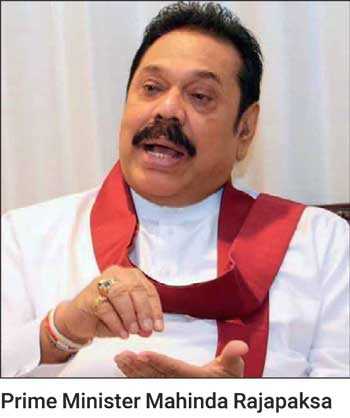Monday Feb 16, 2026
Monday Feb 16, 2026
Saturday, 11 April 2020 00:39 - - {{hitsCtrl.values.hits}}
 Sri Lankans, living here or abroad can now open a ‘Special Deposit Account’ that will earn higher interest, which is part of the Government’s efforts to attract more foreign exchange to the country.
Sri Lankans, living here or abroad can now open a ‘Special Deposit Account’ that will earn higher interest, which is part of the Government’s efforts to attract more foreign exchange to the country.
The Gazette, released by the Finance, Economic and Policy Development Ministry under Prime Minister Mahinda Rajapaksa earlier this month, exempted Special Deposit Accounts from following any procedural requirements specified in the Foreign Exchange (Classes of Capital Transactions in Foreign Exchange Carried on by Authorised Dealers) Regulations No. 1 of 2017 published in the Gazette Extraordinary Notification No. 2045/56 dated 17 November 2017.
“Any Sri Lankan individual resident in or outside Sri Lanka, including dual citizens, citizens of other states with Sri Lankan origin, and any individual resident outside Sri Lanka including funds, corporate bodies, association, and other well-wishers, are hereby permitted to open and maintain an account titled ‘Special Deposit Account’ in the form of term deposits either in any designated foreign currency or in rupees, with an authorised dealer in Sri Lanka, out of inward remittances from abroad routed through the banking system, favouring the account holder during the period of six months from the date of this regulation,” the Gazette said.
The minimum tenure of these deposits is six months, and the interest payable will be 1% higher than the market rate for six-month deposits and 2% higher for 12-month deposits. This preferential interest rate will be paid at the maturity of the deposit. The deposits will be freely convertible and repatriable outside Sri Lanka on the maturity of the term deposits. The criteria for opening and maintenance of the Special Deposit Accounts permitted debits and credits thereof shall be in terms of the directions issued to authorised dealers by the Central Bank, under Section 9 of the Act in that behalf.
“For the purpose of these regulations, the designated foreign currencies are, the United States dollar, euro, pound sterling, Australian dollar, Singapore dollar, Swedish krona, Swiss franc, Canadian dollar, Hong Kong dollar, Japanese yen, Danish krone, Norwegian krone, Chinese renminbi, and the New Zealand dollar.”
The move to woo foreign exchange comes amidst tightening of rules against outflow and restricting import of non-essential items. The rupee has seen sharp depreciation amidst the COVID-19 pandemic whilst Sri Lanka has to repay a total of $ 4.8 billion this year, with the next large payment of $ 1 billion due in September.
Earlier this week, with the view of preserving the foreign currency reserve position of the country, minimising the existing pressure on the exchange rate and considering the possible negative impact to the economy due to the outbreak of the COVID-19 pandemic, the Cabinet approved an order imposing measures on outward remittances on capital transactions for a period of three months.
The order was gazetted by the Finance, Economic and Policy Developments Ministry on the recommendation of the Monetary Board of the Central Bank (CBSL) and the approval of the Cabinet of Ministers, a statement issued by CBSL said.
Under this order, it was decided to suspend the general permission granted to make outward remittances for investments overseas through the Outward Investment Accounts by persons residing in Sri Lanka, excluding the investments to be financed out of a foreign currency loan obtained by the investor from a person residing outside Sri Lanka under the provisions of the Foreign Exchange Act, or investments to be made to fulfil the regulatory requirement in that country.
The order also suspends outward remittances through Business Foreign Currency Accounts (BFCAs) or Personal Foreign Currency Accounts (PFCAs) held by persons in, or resident in, Sri Lanka, other than for the remittances on current transactions, as well as the repatriation of funds under the migration allowance through Capital Transactions Rupee Accounts (CTRAs) by the emigrants who have already claimed migration allowance. The order also limits the eligible migration allowance for the emigrants who are claiming the migration allowance for the first time up to a maximum of $ 30,000.
The latest measures also limit the authority of the Monetary Board to grant special permission for investments on a case by case basis, which exceeds the limits specified in the general permission, only to those satisfying the criteria mentioned above. The restrictions are only applicable to the identified capital transactions and do not impose any restrictions on already permitted current transactions.